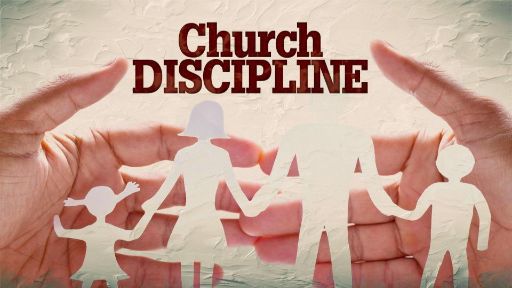-
It Is Finished...or Is It?
Contributed by Kevin Taylor on Nov 24, 2000 (message contributor)
Summary: This Easter message encourages 'new life' for those who are simply ready to 'give up the ghost!'
I. Jesus Reached the Finish Line – Text: John 17:1-5
A. Jesus had, once and for all, completed His work – vs. 4, “I have finished the work which You have given Me to do.”
B. Jesus had just spoken, in John 4:34, that it was His “food” (or KJV says “meat”) was to do the will of the One who sent Him, and to finish the work.
C. If we were to skip over to John 19:28-30 we would find Jesus’ desire coming to fruition. Listen to these words of John:
“After this, Jesus knowing that all things were now accomplished, that the Scripture might be fulfilled, said, ‘I thirst!’ Now a vessel full of sour wine was sitting there; and they filled a sponge with sour wine, put it on a hyssop, and put it to His mouth. So when Jesus had received the sour wine, He said, ‘It is finished!’ And bowing His head, He gave up His spirit.”
1. There is something quite significant here about them putting the sour wine (or as the KJV calls it “vinegar”), on the hyssop branch.
2. First of all, according the recount of the Levitical Law, given in Hebrews 9:19, when Moses had read every law and precept within the book of law, he, then, as ordered of God, took the blood of calves and goats, along with water, on a scarlet wool and a hyssop branch, to sprinkle the book and all the people who heard the law. This was to secure the covenant of God’s law to man. As Moses sprinkled the blood from the hyssop, he declared, “This is the blood of the covenant which God has commanded you. ”
3. This is where we find it to continue to say, that he sprinkled everything with the blood from the hyssop because without the shedding of blood, there is no remission (cleansing) of sins!
4. We also find the hyssop being used in the Old Testament when Moses was commanded to dip a hyssop branch into blood to apply to the doorposts of the children of God. Thus, preventing the spirit of death from entering therein. This is known as the “Passover.” In the NT, Jesus became the Passover Lamb!
5. Once He fulfilled the will of God, the Father, by becoming the Passover Lamb, He could say with reassurance, “It is finished!”
6. For, He had certainly finished what He started!
a. Let’s look for a moment at the Passover. Many of us are always looking for power! Power! Power! Power! That’s all we Pentecostals think about! However, on this, the week prior to the crucifixction and resurrection of our Lord, let’s not look too much at power. The reason? Because, Pentecost always comes after the Passover!
b. Folks, you cannot have power, without Pentecost. And you will never have Pentecost without first experiencing the Passover!
c. You must experience Jesus before you can experience His Spirit!
d. In a few weeks we will be celebrating Pentecost Sunday. Let’s remember what “Pentecost” requires! Remember, “pente” means “high.” It’s no coincidence that the 120 met in an upper room in order to experience what we know today as the Pentecost. “Pente” means high. Such as “penthouse” which is the highest room in the building. And we all know what “cost” means!? So, to receive the power requires a “high cost.” Notice, when Acts speaks of the upper room experience, it actually says, “When the Day of Pentecost had fully come… ” Which implies the Passover was over, the festival of Pentecost was over…then the power came!
e. Therefore, you could not have enjoyed the power resulting from Pentecost, had it not been that Jesus had finished the work of the Lord.
D. Jesus reached His finish line. But, prior to that….
II. God, Himself, Reached a Finish Line (Of Sorts)
A. Genesis 2:1-3 “Thus the heavens and the earth and all the host of them, were finished. And on the seventh day God ended His work, which He had done, and He rested on the seventh day from all the work, which He had done. Then God blessed the seventh day and sanctified it, because in it He rested from all His work which God had created and made.”
B. Notice, it said, “God rested from His work that He had finished.” There are two things I want you to observe from this simple verse. They are:
1. He rested. God doesn’t rest, does He? The Psalmist says that He never sleeps or never slumbers - is there a difference? Yes! Resting is just that – resting. Slumbering is sleeping, from drowsiness. Romans 11:8 implies that “slumber” is an evil spirit. This wouldn’t be the same as God resting; the two cannot coexist.
2. Also, He doesn’t need rest like you and I. But, He made us, and He made us to need rest! Therefore, He gave us this example to say, with volume, that He expects us to rest!

 Sermon Central
Sermon Central



